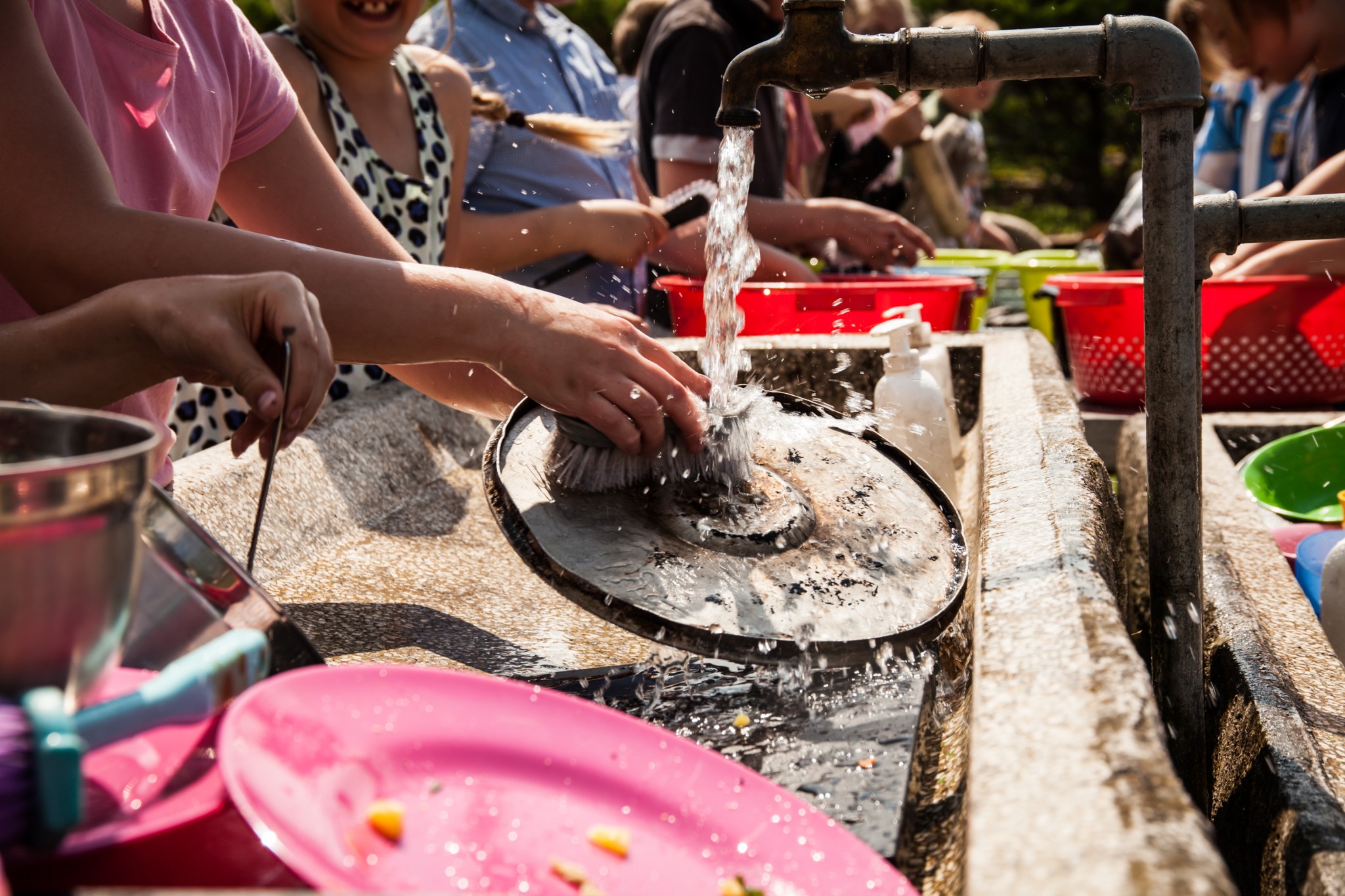Practical Advice
There are a number of things to think about when establishing a Field to School programme in the school. Here are a few tips that might help you when setting up your project.
Link with a suitable farm or growing area
- Find a local farm to visit to create the inspiration for your field to school activities.
- Plan the day with the farmer to ensure you get the most out of this real-world experience, leaving work books, quizzes and questionnaires in the classroom.
- Think about how your farm visit can form a platform for future leaning in the classroom.
- Consider a programme of link ups with your chosen farm / growing area throughout the year to see the changes in season.
Use enterprise learning projects as a way of raising funds to support your outdoor learning
- Farms and growing areas are businesses, so these links can be an ideal way to start thinking about enterprise learning projects.
- Consider selling food on a stall at school, being a drop-off point for a vegetable box scheme or even set up a regular farmers’ market in the school hall.
- Involve the pupils with marketing, business planning and selling produce as a learning experience and involve parents and the wider school community.
Use your school grounds to develop a farm link project
- The school premises can provide an ideal opportunity for small-scale growing, even using window boxes and plant pots if space is limited.
- Think about areas in the school grounds that could be used for vegetables, or even chicken keeping and bee-keeping.
- Consider how to look after these enterprises during school holidays and weekends, and plan what to grow accordingly.
- Make the best of the skills and contacts of staff and parents at the school, you may find there are keen farmers and growers amongst them!
Link your projects to the school curriculum
- Field to school projects can be a valuable way to deliver the curriculum through real-world learning approaches, and this will help justify why you are running them in school.
- Consider what areas of the curriculum you could deliver through a farm link project, be creative and don’t just think about science. Maths, design and ICT can all be delivered through field to school activities.
- Develop a plan to link the field to school projects to the curriculum throughout the year, and with different age groups.
Make a link to the food in your school lunches
- ‘Walk the talk’ and consider the food that children eat in school – can this be from local producers?
- Think about a healthy tuckshop where pupils can produce healthy snacks, or offer a bowl of school-grown tomatoes on the dinner table.
- Talk to your caterer about serving more local, seasonal and organic produce.
Link your Field to School activities to cultural events
- Look at the calendar and think about food-related cultural activities that can be celebrated through a field to school activity.
- As well as traditional events such as harvest festivals and Christmas, consider other celebrations of migrant communities to bridge awareness and learning.
Investigate digital opportunities to create a Field to School link
- Perhaps maintain an ongoing link with the farm or growing site through email, social media or FaceTime/Skype to keep up to date with what is happening on the farm.
- Consider filming or recording elements of the visit that you can then use in class to create a news-story for other pupils and parents, or as a documentary record.
- Use the internet to discover more about farming and growing, and to promote your own school enterprise projects.
To learn more about the project, you can read the full guidelines document by clicking HERE



